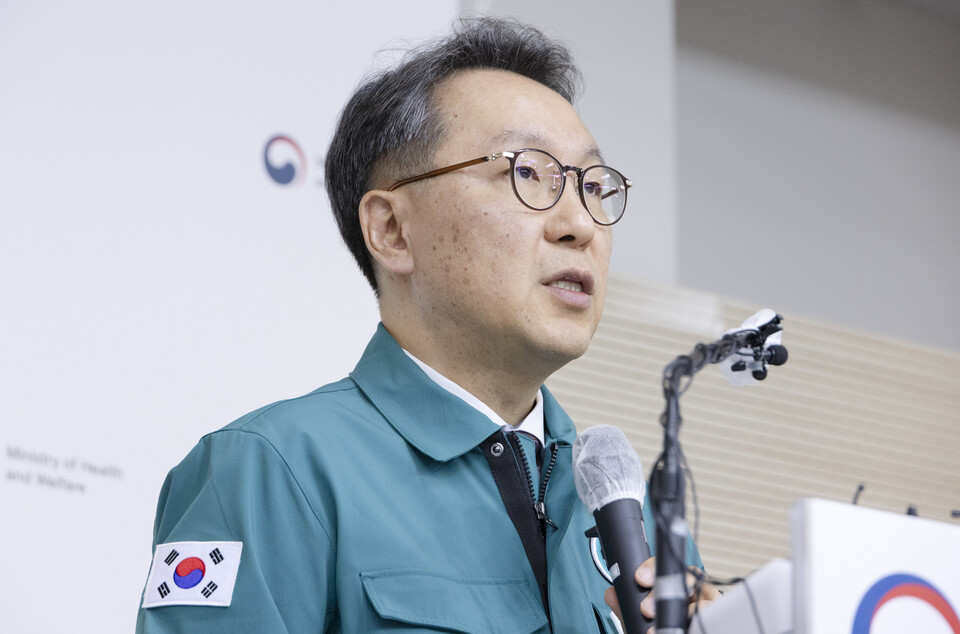
The "deadline" for resigned interns and residents to sit for the state exam to become specialists has arrived, but the atmosphere among trainee doctors remains the same. Most see no reason to return, saying the situation has not changed.
According to government officials, medical residents in their third and fourth years who resigned on Feb. 19 had until May 20 to return to work to meet the requirements to acquire specialist licenses next year.
According to the Regulations on Specialist Training and Qualification Recognition, doctors are required to train additionally if there is a gap in their training period, and if the gap exceeds three months within a training year, they are not eligible to take the specialist examination held at the beginning of each year.
In general, one month can be excluded from the additional training period if a doctor is unable to practice for reasons other than holidays or leave of absence. However, the government maintains that the departure of medical residents due to resignation cannot be considered an unavoidable reason.
To obtain a specialist license next year, they must return to work immediately," Second Vice Minister of Health and Welfare Park Min-soo said at a regular briefing on Monday. "The government does not regard the departure from workplaces due to collective action as an inevitable reason and will not exclude one month."
However, resigned trainee doctors said they have "no reason to return" as the situation has not changed.
"Nothing has changed, and I don't think anyone would go back just because they cannot take the state exam for specialists," said a third-year resident at a university hospital in Seoul in a phone conversation with Korea Biomedical Review. "As I know, most of them thought they would take at least a year off when they resigned. I don't see any of my colleagues wavering."
He continued, "It (the specialist exam) wasn't even a consideration for returning in the first place, and all resigned trainee doctors want the situation to be resolved correctly. It's absurd to go back because you can't pass the specialist exam when nothing has changed."
Another third-year resident who worked at a training hospital in the Gyeongsang region also said, "I heard that some trainee doctors in essential medicine departments are planning to quit trainee doctor courses altogether, and others are planning to stop working as trainee doctors for one or two years. Few interns and residents will return because they cannot take the specialist exam.”
The trainee doctors criticized the government for failing to take any measures to address the shortage of young doctors while "making a mockery of the notification (for looming deadline)."
"If the fourth-year students don't take the state exam, there will be no doctors. Now that interns have also given up their training, there will be a shortage of doctors to be specialists,” said the medical resident in the Gyeongsang region. "The government is mocking doctors by saying, 'If you want to become a specialist, come back,' without taking any measures.”.
‘Government cannot work out countermeasures for all problems’
However, the government has reiterated that there are no extenuating circumstances for administrative penalties for trainee doctors who would not return to work.
At a regular briefing, Vice Minister Park said that trainee doctors' failure to obtain specialist licenses negatively impacts the medical personnel fostering system, but it is impossible to take measures for all problems.
"If there is a delay in the production of specialists due to trainee doctors not completing their training in time, it will naturally hurt the entire human resource development system. So the government hopes that they (doctors) will return in time and there will be no problems in the human resource development system," Park said.
"Some people ask whether the government has a plan to cope with this situation, but the government cannot come up with all the responses to all the problems," he said. "It is not desirable for the country to have medical students and specialists deviate from the normal process and continue to do so. We will do everything possible to communicate with them and get them back to work as soon as possible."
He reiterated that the ministry has no intention of amending the training regulations or extenuating the administrative penalties by, for instance, delaying the deadline for additional training before the trainee doctors return.
"The departure of trainee doctors cannot be considered inevitable (as defined by law). It is an illegal departure in violation of executive orders, including the government's order to open government business," Park said, "It would be premature to consider amending the law without correcting the illegal departure.”
Park continued, "There are no barriers to returning. I have heard that many trainee doctors want to return, but they are often deterred by the relationship between their colleagues and seniors. I hope they will have the courage to return."

